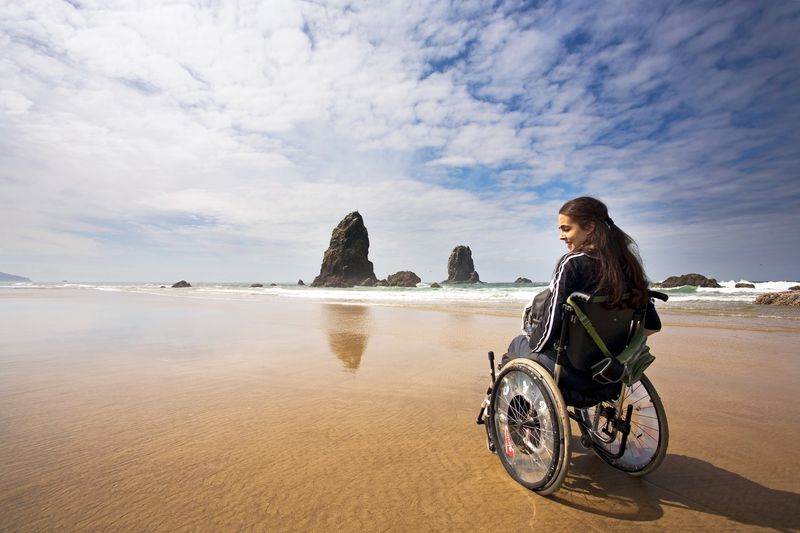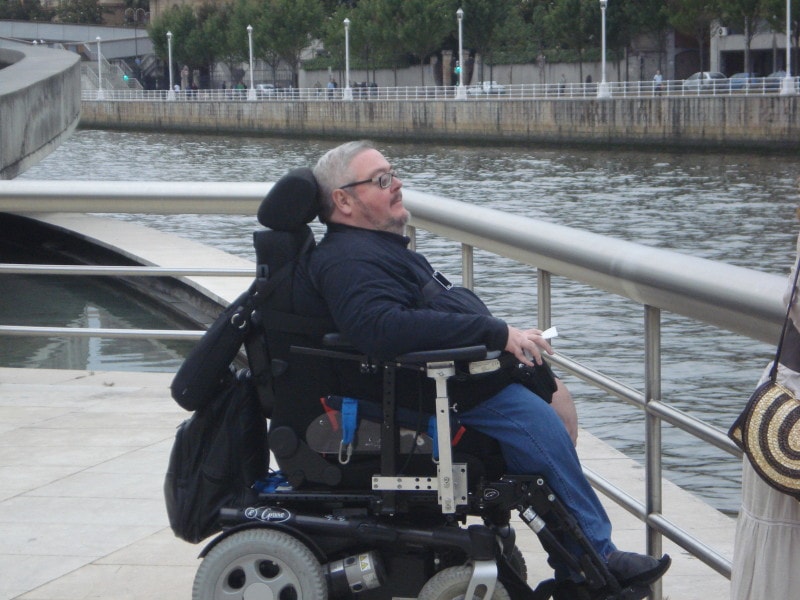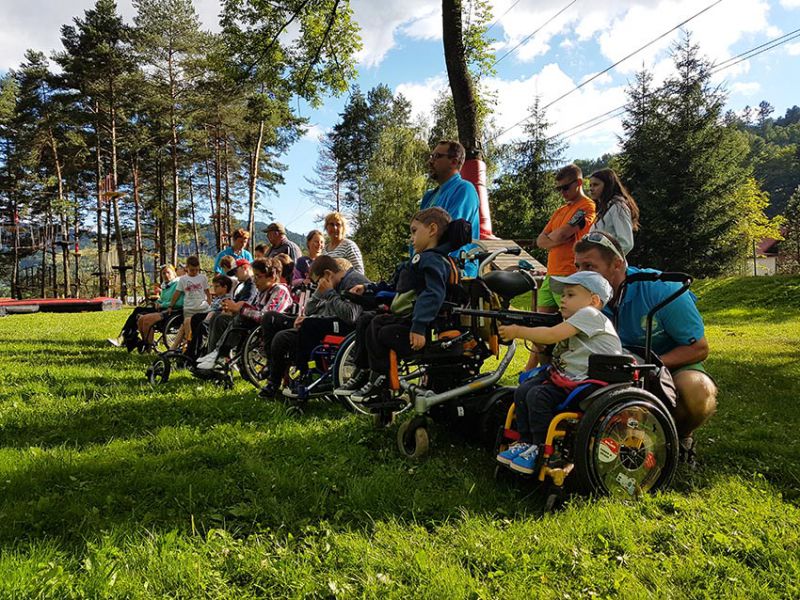
We all love travelling: meeting new destinations, new friends… But in the case of people with disabilities, this is not only a pleasure, but travel also has a therapeutic component. Travel has been shown to increase social skills, communication skills and self-esteem.
In addition, with ContigoMas Viajes (an agency specializing in travel for people with disabilities of any kind), people who travel have the opportunity to participate in the entire process of organization and decisions, thus promoting the ability to manage daily life.
Today we are going to tell you some of the benefits of traveling, focusing on people with disabilities, or any special needs.
Travel Benefits for Persons with Disabilities
A first step out of the comfort zone
Traveling, especially over long distances, means preparing for new experiences. Getting to know different cultures and customs, being surprised by different ways of dressing…
This requires an exercise of empathy and patience, since we have to be prepared to do it.
understand everyday situations, changing our perspective. Because what for us can be a gesture that denotes a tremendous lack of education, elsewhere in the world can be a symbol of respect and admiration for the unknown who presents himself to another community, ready to share new life experiences.
Evidently, this generates a breadth of vision, which makes us aware of how small the primary environment of the human being is.
But new experiences carry (always) a previous “fear” of the unknown. A sensation instinctive and primeval danger, which threatens our emotional stability.
But at the same time, a feeling of attraction, as when a child feels the need to make a mischief, even knowing that he runs the risk of being punished. But the craving for adventure is stronger than anything else. This is what we call “getting out of the comfort zone”.
We all urgently need to get out of our comfort zone from time to time. But what about people with disabilities?
The world of every disabled person is involuntarily limited by invisible social barriers, which make it more difficult to overcome small obstacles that, for the rest of society, are mere trifles. So when a person with a disability leaves their comfort zone, it is as if invisible walls as high as skyscrapers fall.

It is as if the Great Wall of China stood in front of a person and their dreams and suddenly hammered them down.
Every small achievement is greatest when it is achieved with effort and tenacity. And a reinforced self-esteem in the face of adversity is the first and main consequence that travelling has for people with any type of disability.
And even more so, if we take into account that broadening our horizons means getting out of our daily routine, meeting new friends and increasing our capacity to relate to others.
Travel Increases Social Skills
As we have commented before, travelling increases the ability to put ourselves in the other’s place, which means an ability to empathize with other people’s specific situations.
In addition, the fact of leaving our most primary circle, makes us see ourselves in the need to talk to strangers and, many times, make us understand. This, which seems unimportant, becomes a great instrument to improve our communication skills.
Because whoever is capable of making a new friend in a different environment, and even in hostile occasions, is capable of speaking in front of the general public, since he or she acquires resources and tools when it comes to exposing himself or herself to others.
On the other hand, travelling provides us with memories and knowledge that we can use when we have to defend a position, an argument, or maybe a presentation to our bosses, or a presentation to our bosses.
Travelling makes us more sociable and more social. It teaches us to engage in conversation and gives us those “aces in the sleeve” that we all need from time to time to overcome shyness.
On the other hand, traveling increases creative abilities. Today, there are organized trips that focus on getting inspiration to work on.
Renowned chefs, painters, architects, perfumers, designers… All of them use travel as a stimulus, with which they can connect with the muses, making the new ideas gathered during the experience become sources from which to drink when creating new projects.
Finally, travel makes our brain store memories and experiences that increase our culture. Because if you visit the Louvre, you may not remember all of its works. But on the head, there will remain a small painting in “Sfumato” called “La Gioconda”.
Or perhaps an Egyptian sarcophagus covered in gold… Those ancient jewels, or the mummy that appears lying down, inside a transparent glass urn, in the sight of every tourist eager to know.
“Mens Sana” at the stroke of a trip: benefits for the brain
Let’s get a little more “scientific” now.
Science has recently shown that the adult brain can create new neural connections. If you want to have steel biceps, the only way is to pound yourself in the gym.

Today, we all know games aimed at training the brain and fighting the ravages of age. For example, there are video games aimed at exercising memory. This is due to what is known as “brain plasticity”, which is the ability of the nervous system to change its structure and functioning throughout its life, as a reaction to the diversity of the environment.
“When you travel to another place, especially if it is unknown to you, you are forcing your brain to be in a continuous process of solving problems and overcoming challenges. Travelling requires, above all, learning and memorizing everything strange until everything is normal and known.
This is a challenge for your brain and is like accelerated training. It’s important to train and stimulate the brain because, over time, more connections mean more cognitive reserve, making our brain more resistant to age deterioration or the symptoms of neurological diseases.
On the other hand, travel implies the widening of the limits of our personal universe, in such a way that the capacity to relate abstract concepts grows, such as experiences or situations that, applied to daily life, constitute the solution to many of the problems we encounter in daily routine.
In this sense, in ContigoMas Viajes we created a long time ago the program “Viajes autogestionados”, in which the disabled user actively participates in the whole process of organization and decision making that requires the planning of a trip, either short or long distance, one month or two days.
This program seeks to improve the capacity for self-management of daily life of the disabled user, since the trip and its organization are used as a tool at the service of the disabled.
professionals from each entity in collaboration with the agency, to take a further step in this direction.
For example, emphasis is placed on the management of the economy available to the user for each trip, the creation of concept maps of “what, when and how I decide to do a leisure activity on my trip”, the creation of documents adapted to people with intellectual disabilities such as a travel guide or an English dictionary …
It is a matter of “forcing” the machine a little bit, as far as possible, so that the disabled user
is able to achieve his or her own objectives and reach conclusions and places that would otherwise be difficult for him or her to reach.
In short, the goal is to put all the tools at our fingertips (especially our capital to train the brains of people with disabilities in order to overcome any obstacles we encounter along the way. Travel is the excuse. The process of it is what is really important.
Because traveling has three phases:
- The one before: planning.
- During: enjoy the trip and create memories.
- The after: use of the resources obtained.
Therefore, in the face of all these arguments, there is no choice but to conclude that if travelling increases self-esteem, social skills and has clear direct health benefits… Travel is the key that opens the door to what every human being craves: Happiness.
